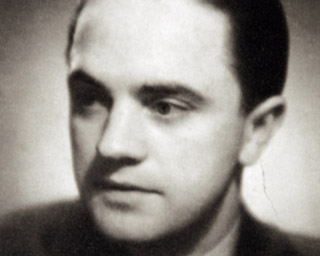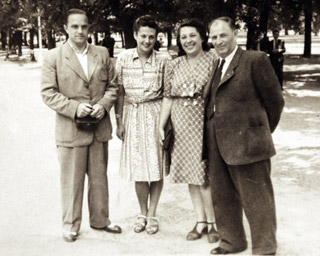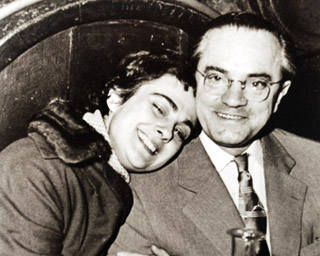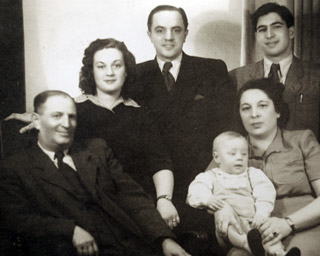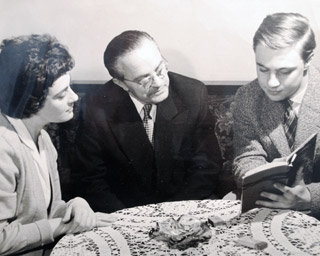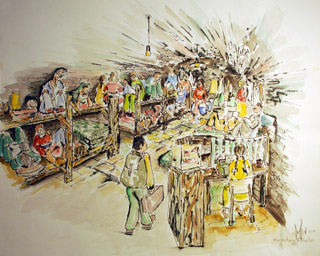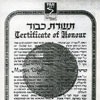Martin Uher
Slovakia

Martin Uher, a former Czechoslovak national soccer player, was a partner in a textile shop in Bratislava during the war. He was well known in Czechoslovakia, both as a member of the Slovan Bratislava football club and national football team and as a member of high society. Among his many Jewish friends was Elizabet Fleischer (b. 1923), the daughter of Karol and Regina and the sister of Palo. During the period of the deportation of girls and young women in the spring of 1942, Uher went to the Fleischers’ home and offered Elizabet a refuge at his relatives’ house in the village of Vištuk, northeast of Bratislava. She hid until the danger had passed and she returned to her parents’ house. As a result of Uher’s help, the two families became good friends.
In 1943, Karol Fleischer’s work permit was not renewed and he was dismissed from his job. His family faced the danger of being sent to a work camp in Slovakia, so Uher smuggled them into Hungary. Following the German invasion of Hungary in March 1944, he returned to Hungary to rescue the Fleischers from the danger they faced there. He smuggled them – except for the son Palo who was in detention in Hungary at that time – back to Slovakia. After the outbreak of the Slovak National Uprising and the German invasion of Slovakia at the end of August 1944, the roundup of Jews was renewed. Uher hid the Fleischer couple in one of his shop’s storage rooms and he took Elizabet back to his relatives in Vištuk.
At this time, Uher also helped other Jews in distress. He placed them in hiding with the Fleischers. Among those to whom he offered temporary or permanent shelter were Magda Markstein from Nitra, Imrich Rosenberg (later Hajný), Moro Levin, and Gerda Szekely. Uher took care of the needs of all his wards. Imrich Rosenberg-Hajny’s testimony revealed a lot about Uher’s activities during the war.
In 1944, Hajný fled back to Slovakia from Hungary and Uher employed him in his shop in return for a salary and allowed him to sleep in his apartment without charge. This situation continued until the end of January 1945, when Gestapo agents captured Hajný walking in the city and deported him to Theresienstadt, where he survived the war.
Uher later was suspected of helping Jews and he and his wards were afraid of searches in his shop. He therefore found a new hiding place for the Jews in his care, but they were betrayed and captured by the Germans in early 1945. They were taken to Theresienstadt. The Fleischer parents survived and were reunited with Elizabet and Palo.
When the war was over, Martin Uher and Elizabet Fleischer married and they had a son. The marriage did not last though and, a few years later, they separated. They nevertheless remained friends.
Yad Vashem’s recognition touched Martin Uher very much. The year he heard about this honor, was also the year he celebrated his 85th birthday. In a letter of gratitude to Yad Vashem, he said that for him, the recognition was the best present he could ever get. He did not make it to the ceremony itself. Martin Uher died in 1991.
On June 20, 1990, Yad Vashem recognized Martin Uher as Righteous Among the Nations.
Yad Vashem would like to thank Mordechay Fleischer for providing additional materials and background for this story.
